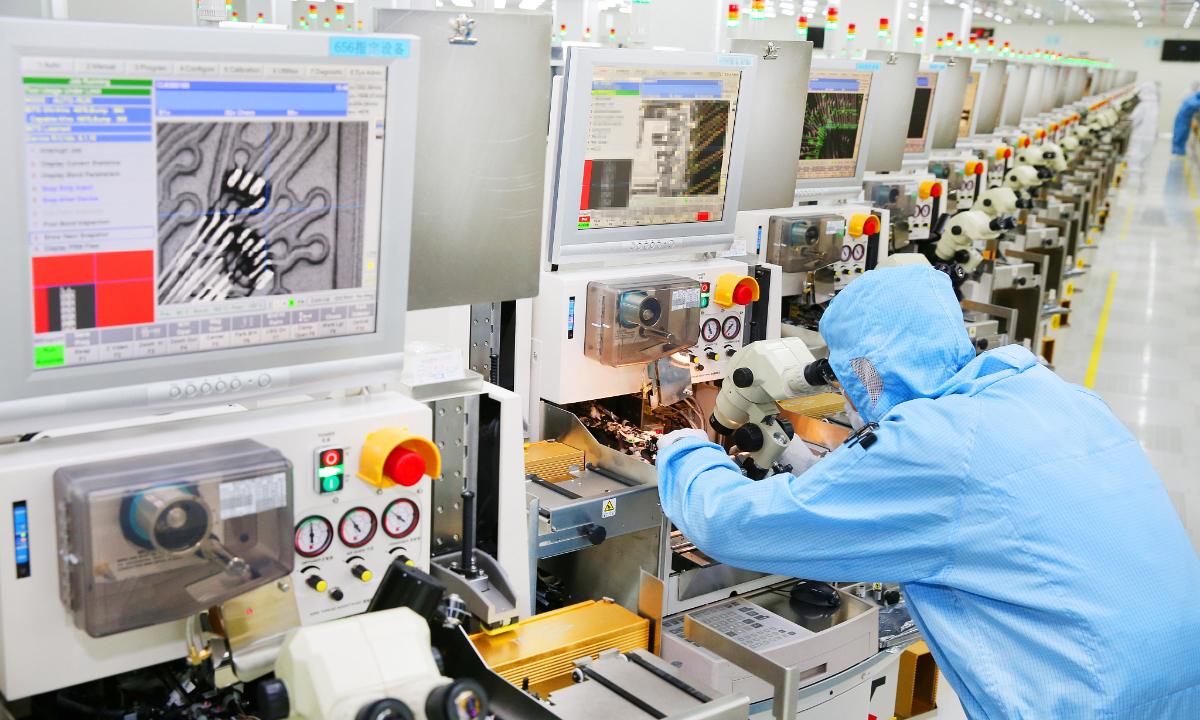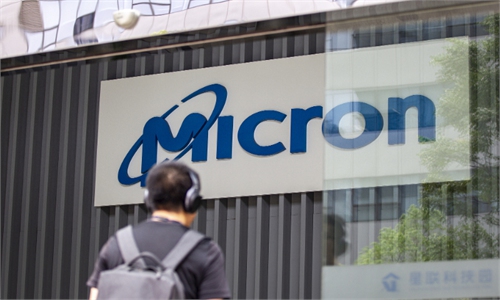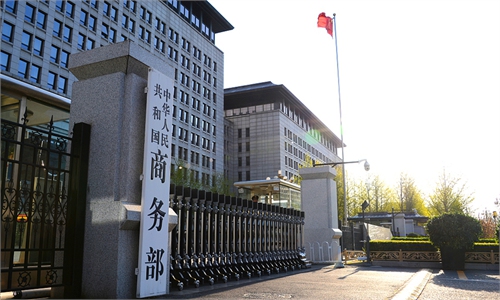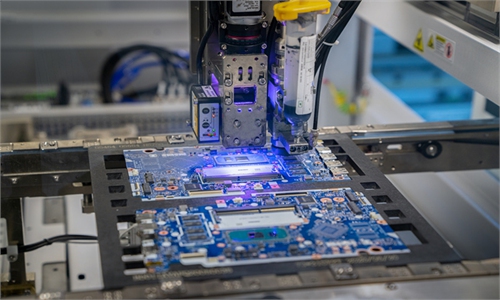
An engineer analyzes chips at a chip factory in Nantong, East China's Jiangsu Province in February. Photo: VCG
Chinese-owned semiconductor maker Nexperia told the Global Times that Dutch law was not applicable to the company's takeover of Nowi, a Delft-based microchips startup, and their activities are "not harmful in any way," after the Dutch government reportedly decided to review Nexperia's acquisition of Nowi.
The FDI screening legislation is not applicable to Nexperia's acquisition of Nowi as the law only covers semiconductor technology for dual use or military purposes, the company said in an e-mail sent to the Global Times on Thursday.
Our technology is very simple in nature and is only developed and sold for commercial applications such as vacuum cleaners or very basic functions in cars, it added.
The remarks came after the Dutch government said it will start an investigation into the takeover of a local chipmaker by Nexperia, a move seen as the Netherlands stepping up controls of the industry amid a chip spat with China.
Nowi, which develops chips that harvest energy, was acquired in November 2022 by Nexperia, a firm headquartered in the Netherlands but owned by Chinese tech firm Wingtech.
That acquisition will now be reviewed under a new investment-screening law that entered into force Thursday, according to Politico.
"Certain states want to exercise power by influence over companies, technologies and critical infrastructure. This can affect the national security of the Netherlands," Micky Adriaansens, the Dutch economy minister, said at the final parliamentary debate on the bill in mid-April, Politico said.
In response, Nexperia said, "We stand for full transparency. If the Ministry still deems it necessary to initiate a probe, we will provide all required information. From this information, it will be clear to the Ministry that our activities are not harmful in any way."
Although the company confirmed that Dutch law was not applicable to the company's takeover of Nowi, the takeover could also add to the chip spat between China and the Netherlands.
In March, the Dutch government announced export restrictions on the "most advanced" semiconductor technology, saying the new controls will be introduced before the summer.
In response, Chinese Foreign Ministry spokesperson Mao Ning said that China firmly opposes the move by the Netherlands as it interferes with and constrains normal trade between Chinese and Dutch firms through administrative means.
Chinese experts said the shadow of the US is behind the Netherlands' latest move, as there are more countries strengthening regulations in the semiconductor industry, which will challenge the security of the global chip industrial chain.
The UK cited national security concerns when it ordered Wingtech's Dutch subsidiary in November to undo its acquisition of Britain's biggest microchip factory more than a year after the deal was closed, reported Bloomberg.
"There have been fewer mergers in the chip industry since 2021, and also less investment, which will seriously hamper the development of the industry," Ma Jihua, a veteran industry analyst, told the Global Times on Friday.
The economies of China and the Netherlands are highly complementary, with huge potential for cooperation and sound growth momentum in bilateral trade, said Chinese Vice President Han Zheng during a meeting with Dutch Deputy Prime Minister and Foreign Minister Wopke Hoekstra on May 24 in Beijing, Xinhua News Agency reported.
Han said that China is ready to work with the Netherlands to bring more benefits to the peoples of the two countries through practical cooperation in various fields.
The two countries should take a long-term view, strengthen communication and exchanges, promote the stability and smooth flow of global industrial and supply chains, and focus on mutual benefit and win-win results to create better conditions for cooperation between companies in both countries, according to Han.




